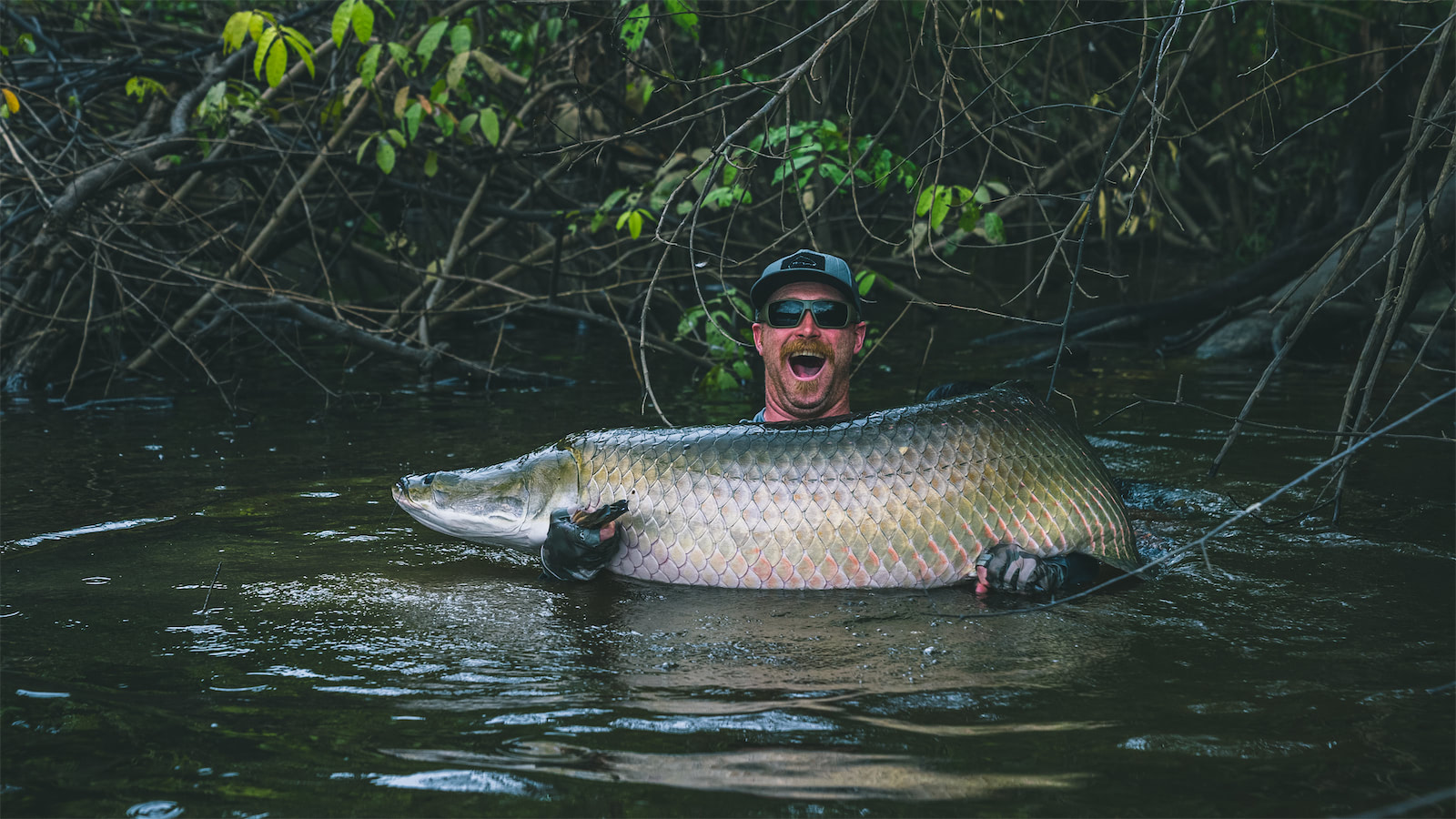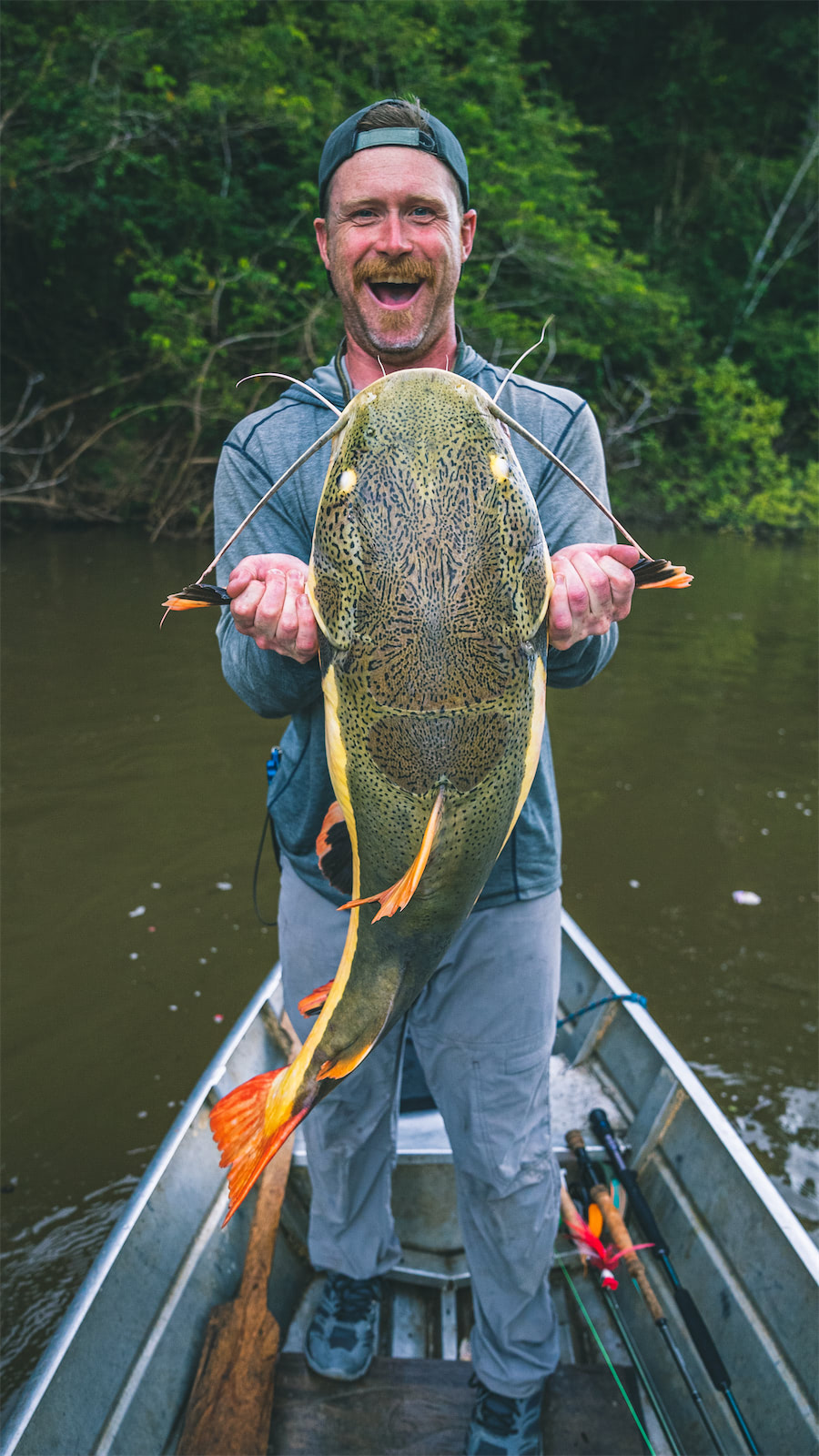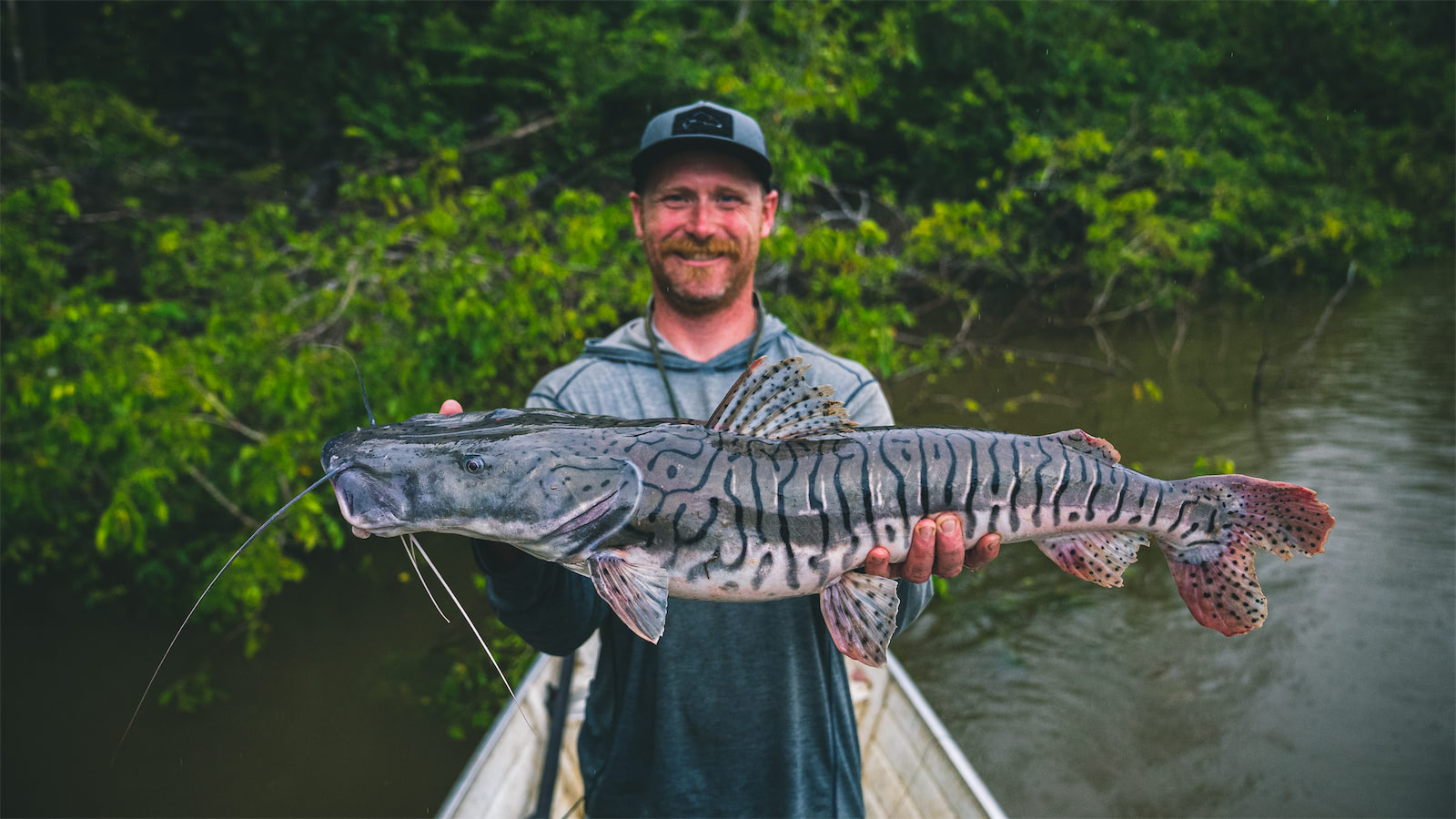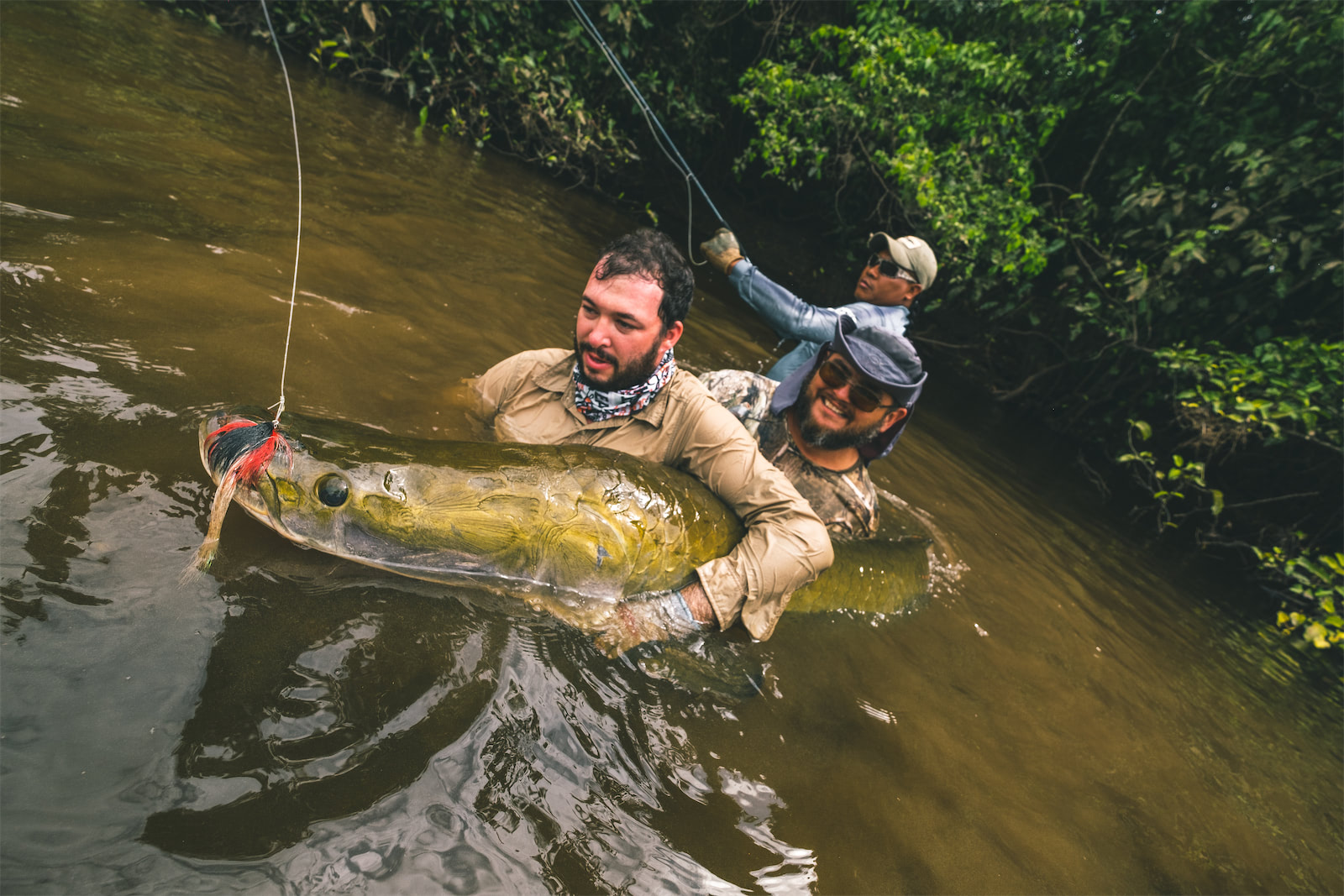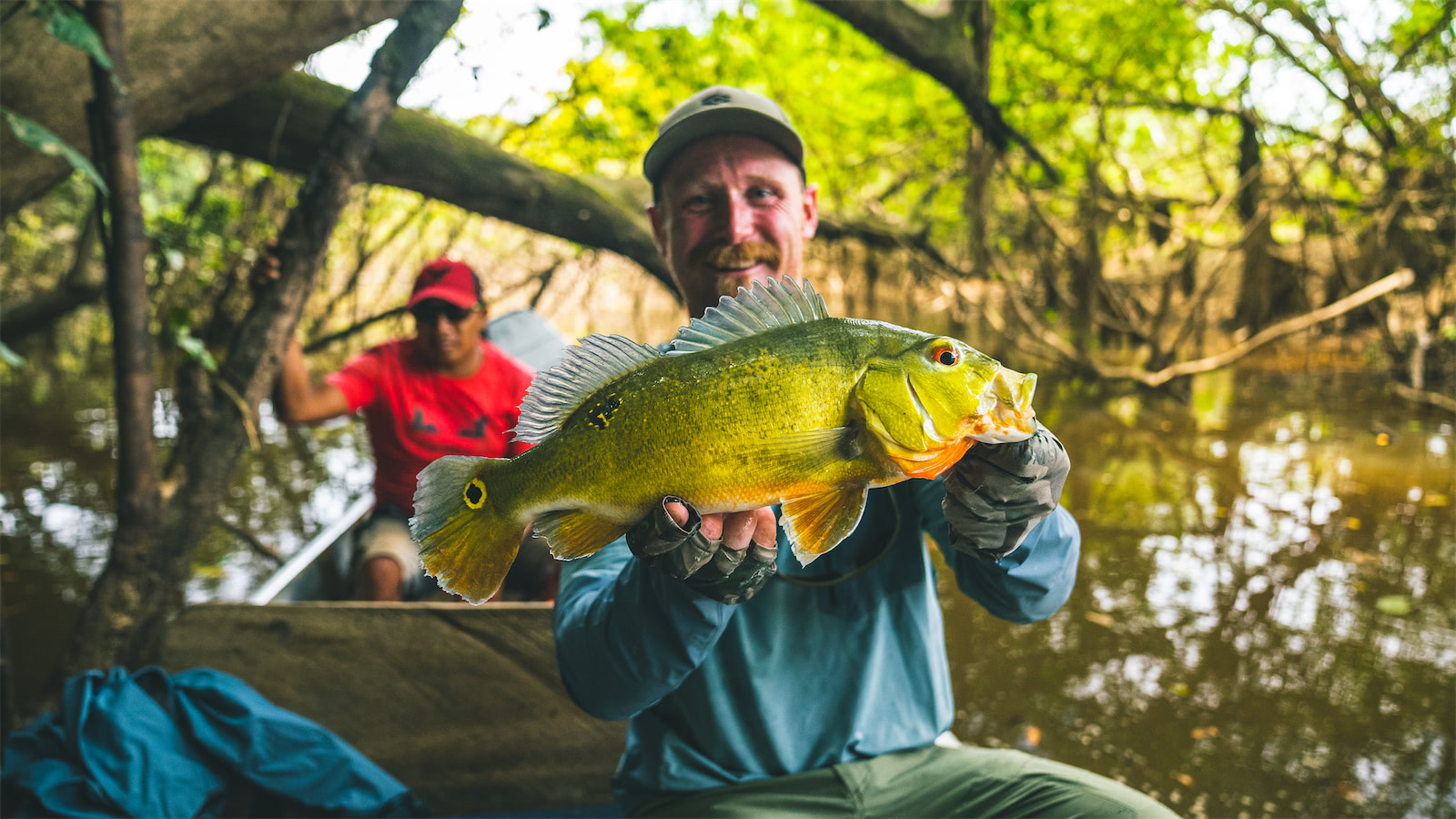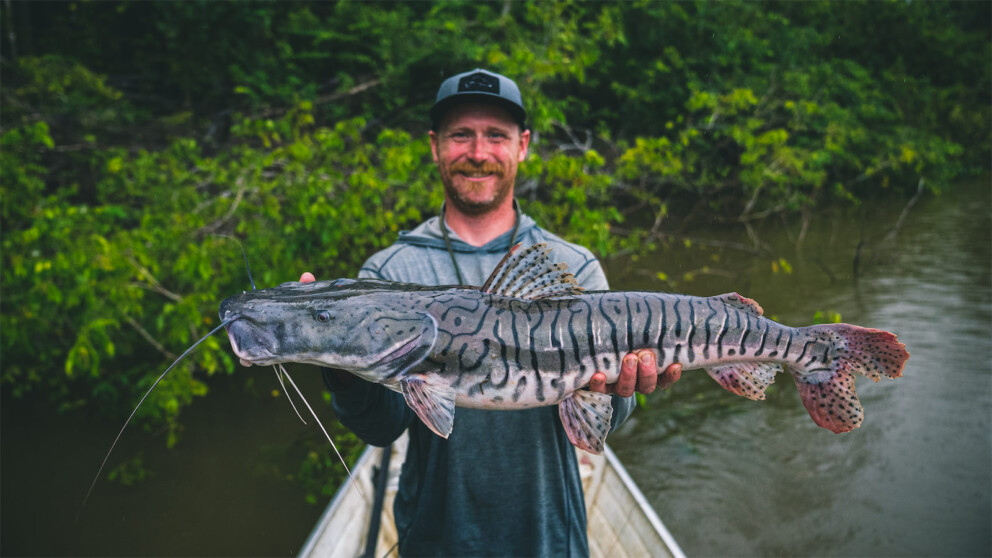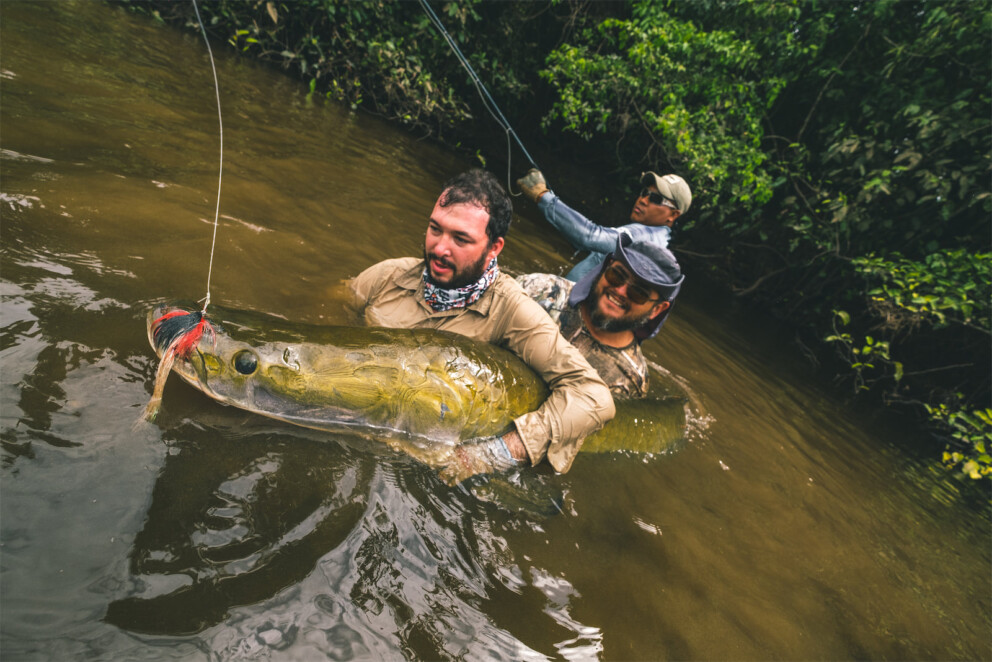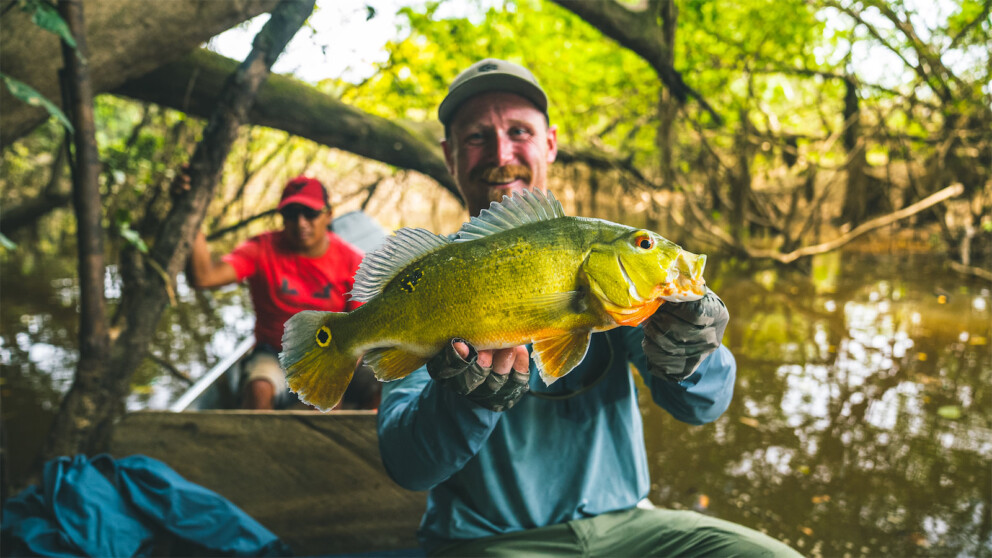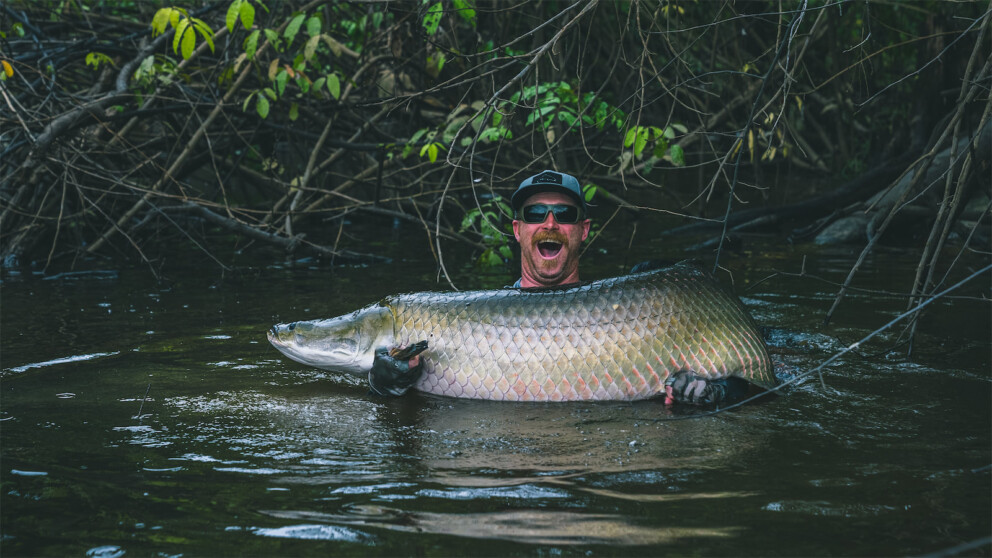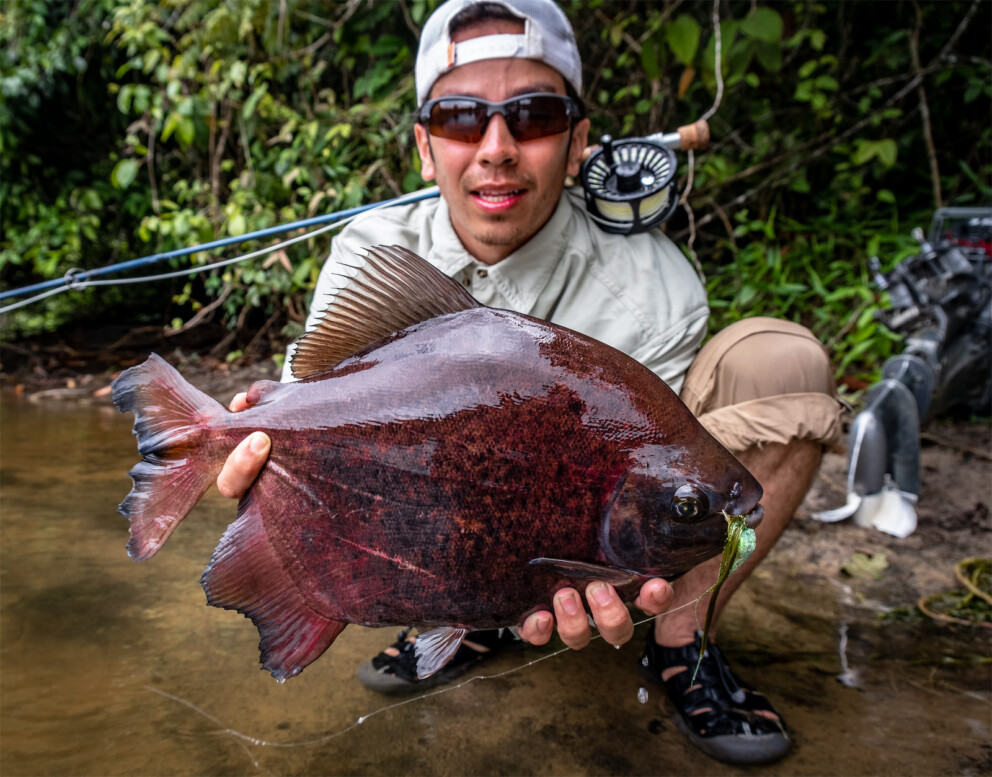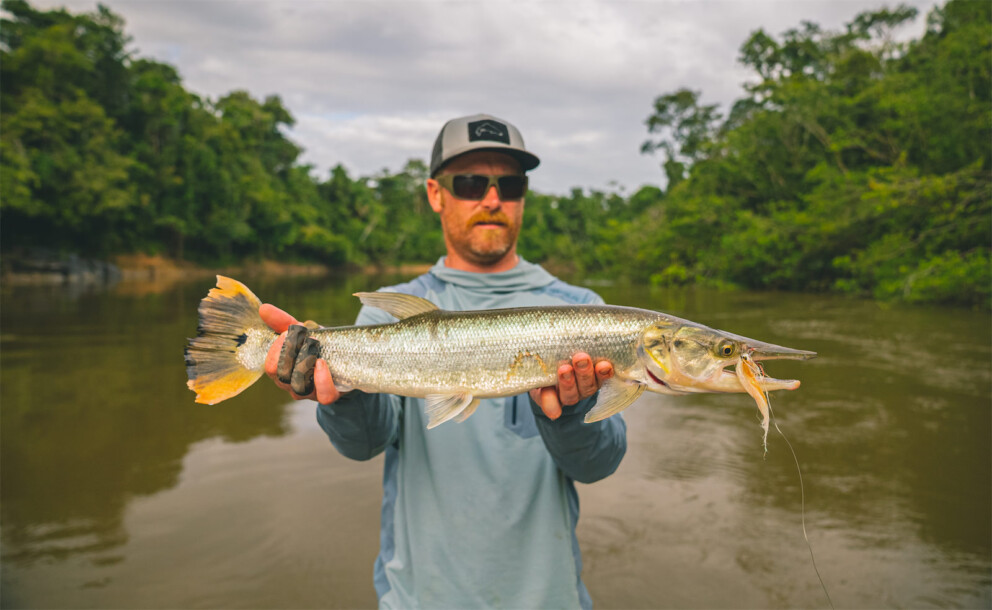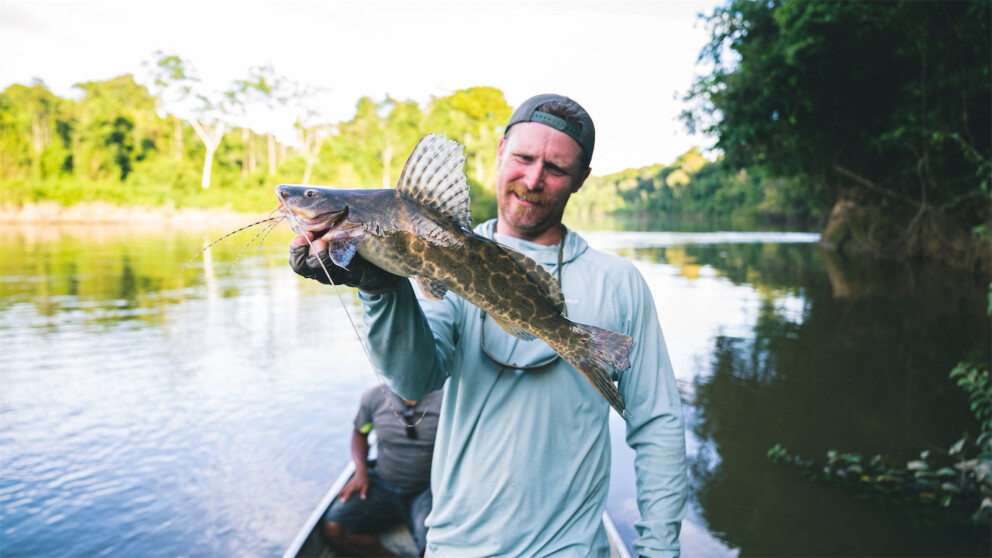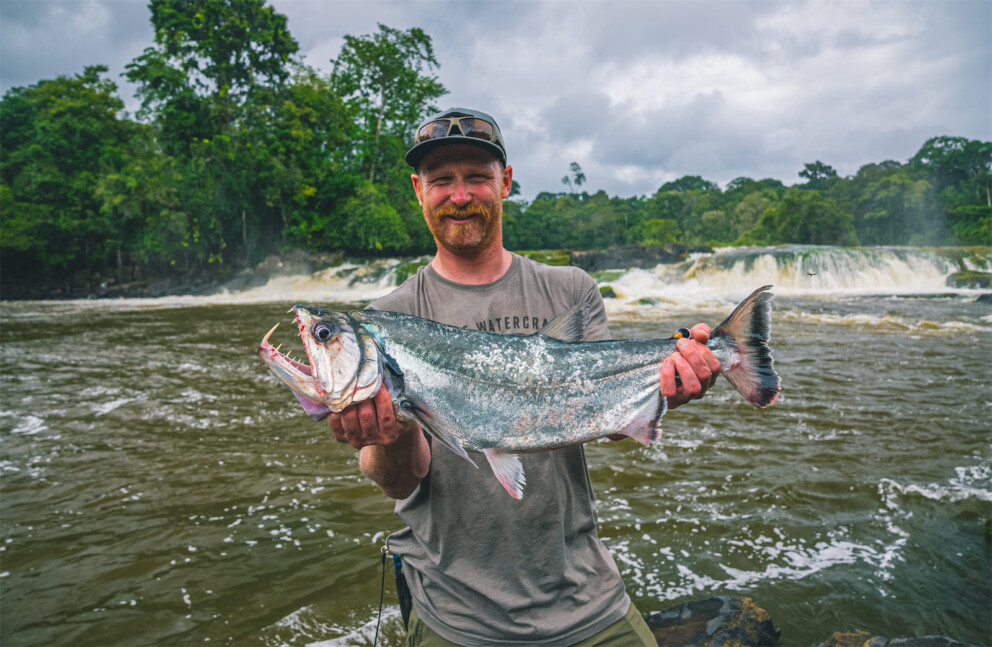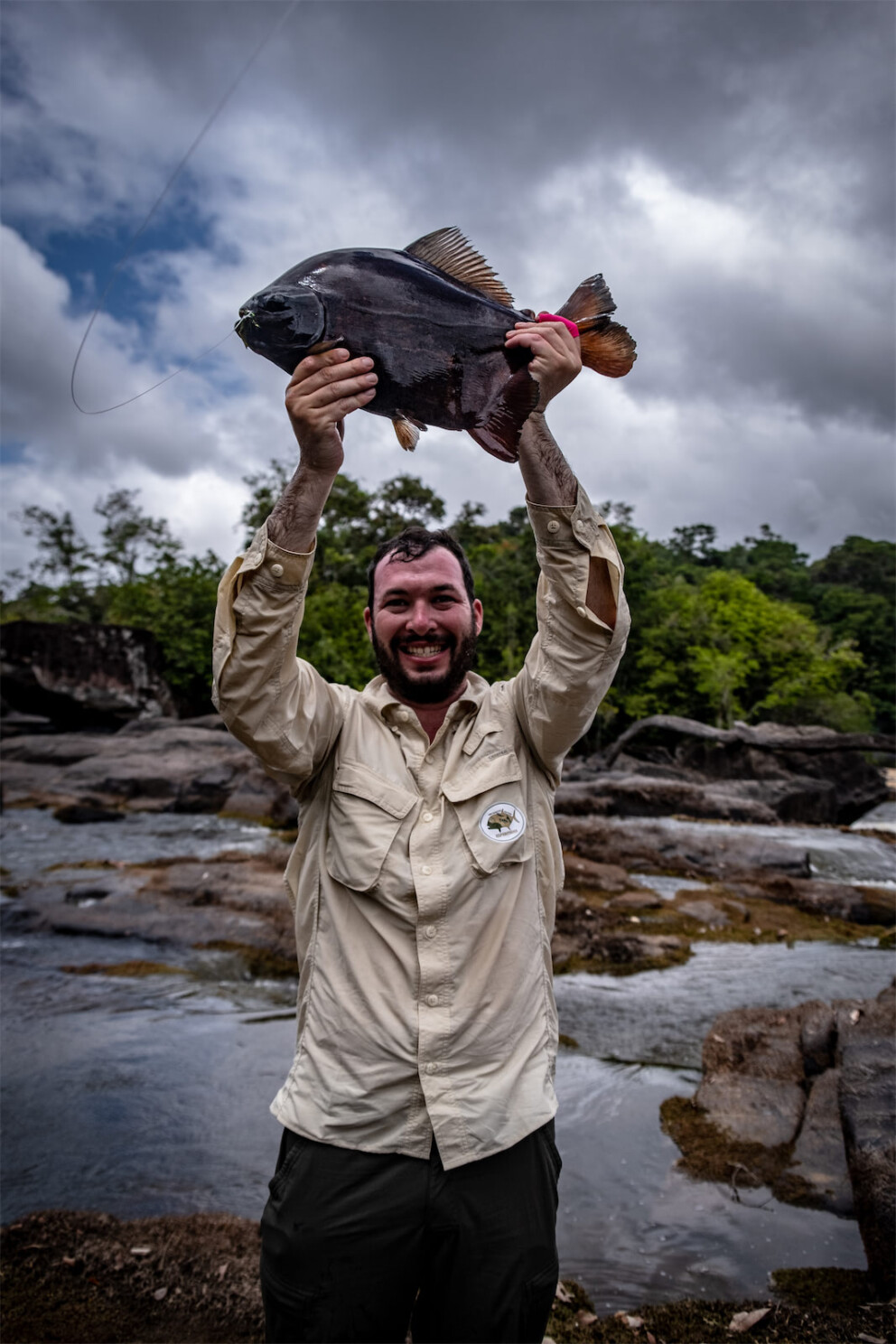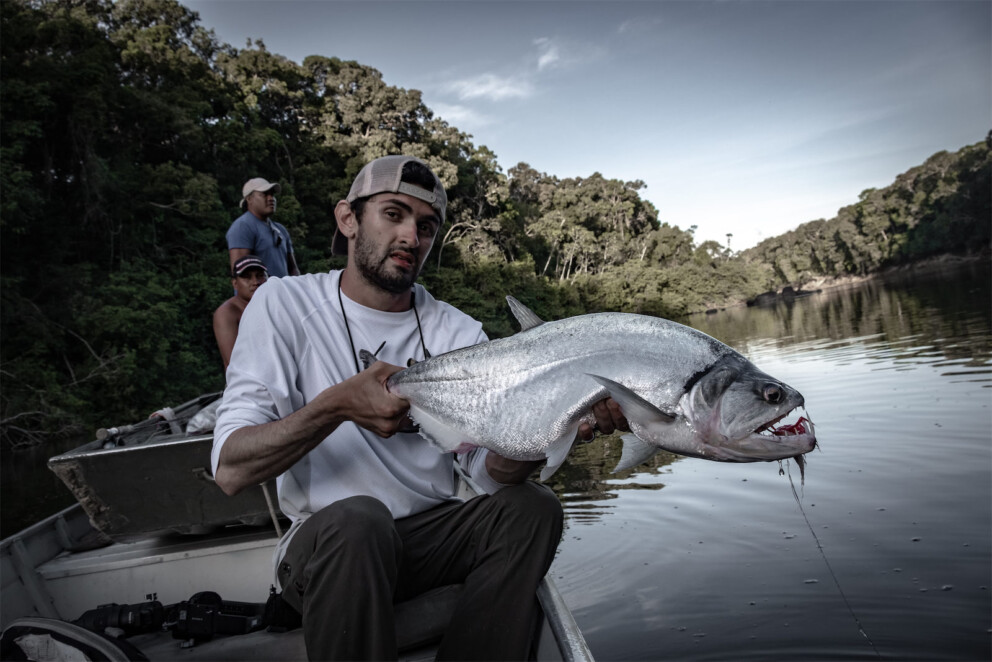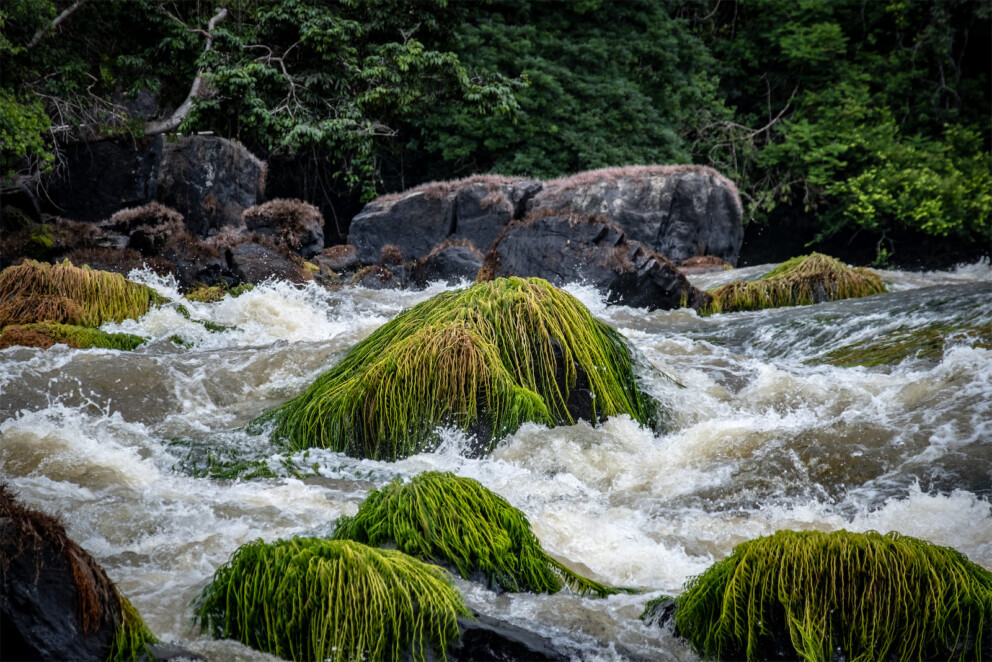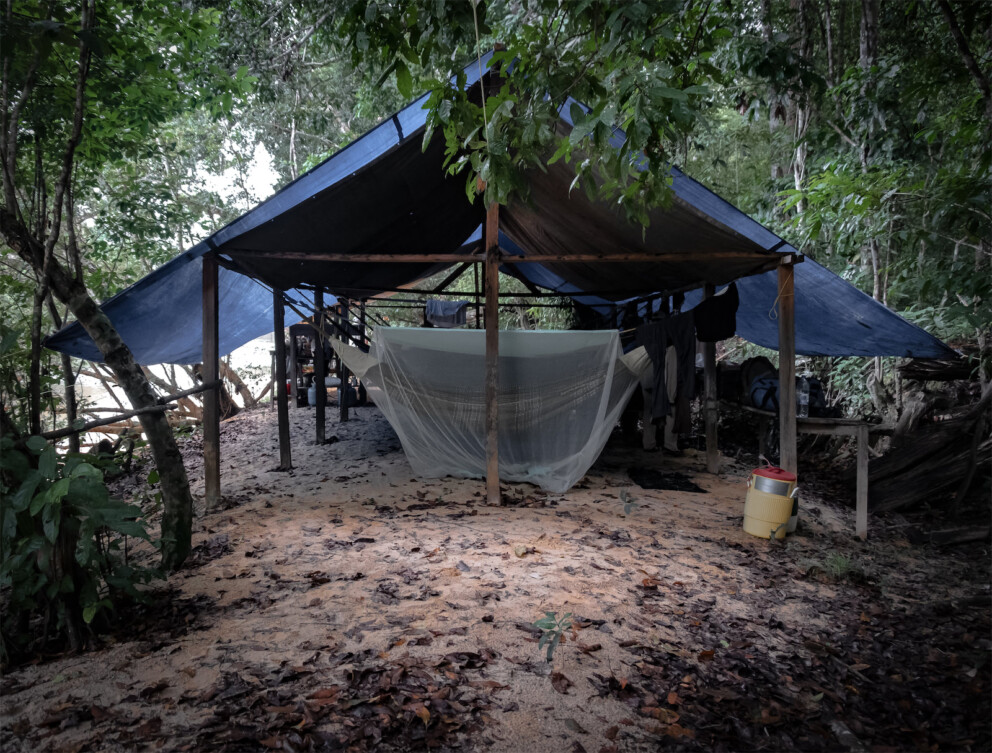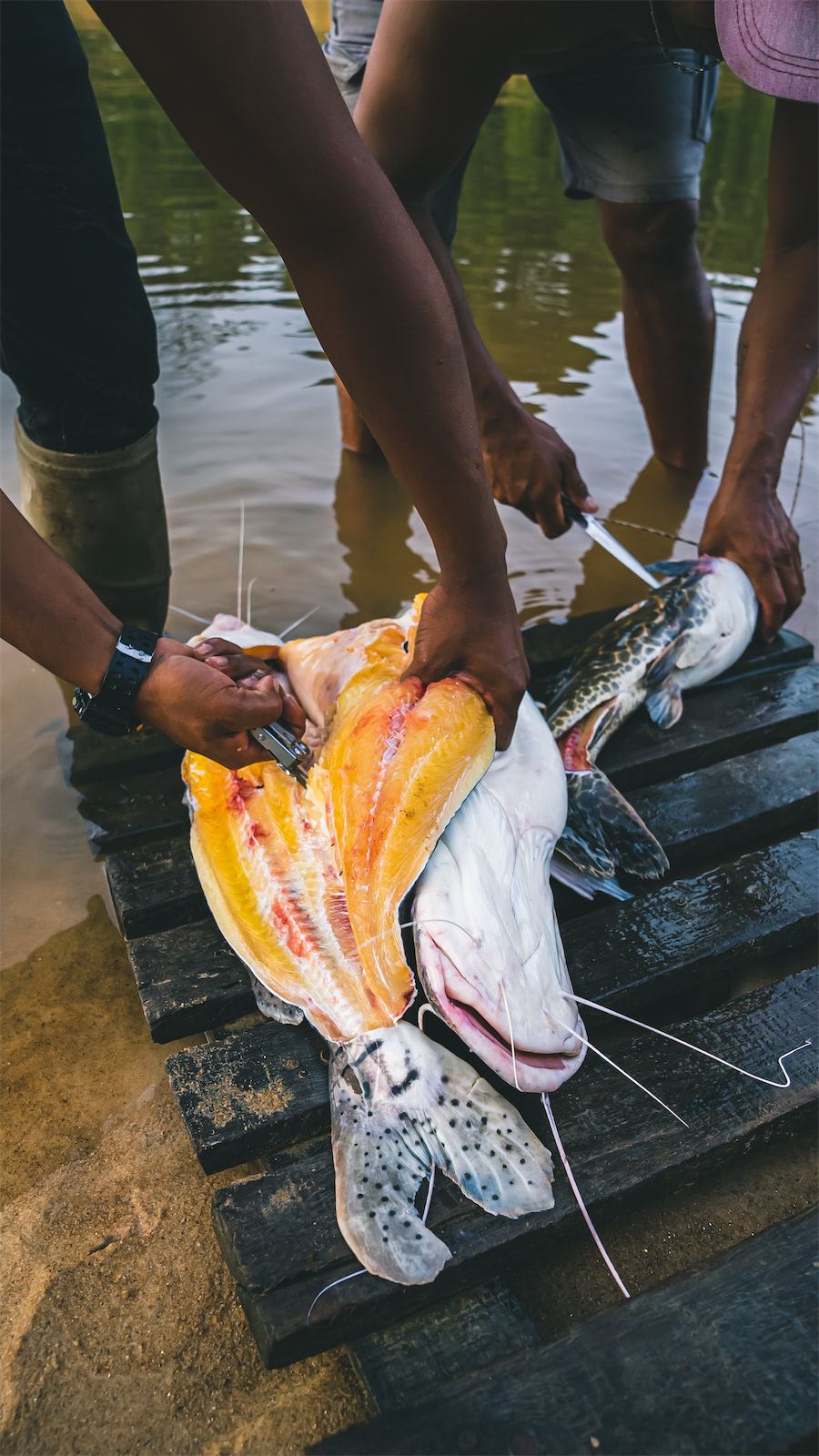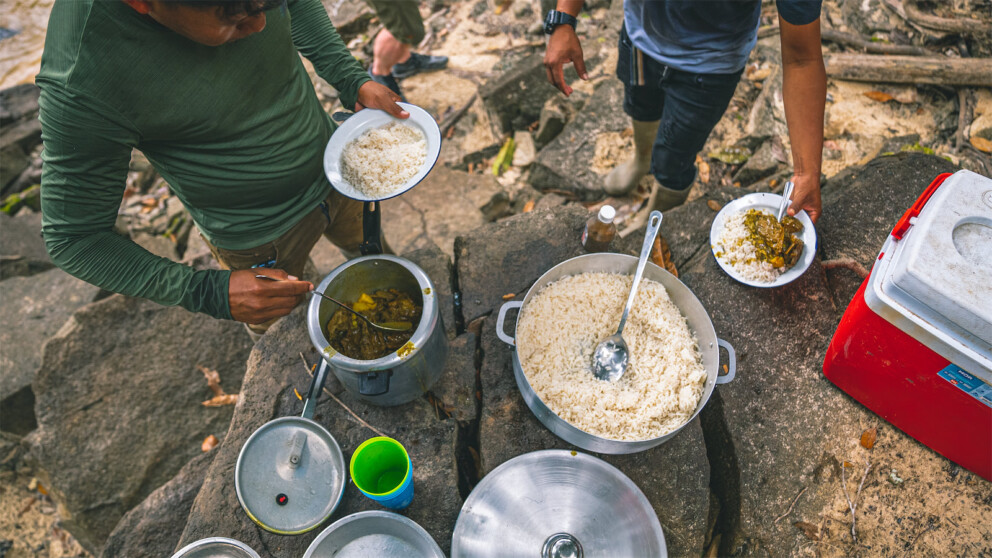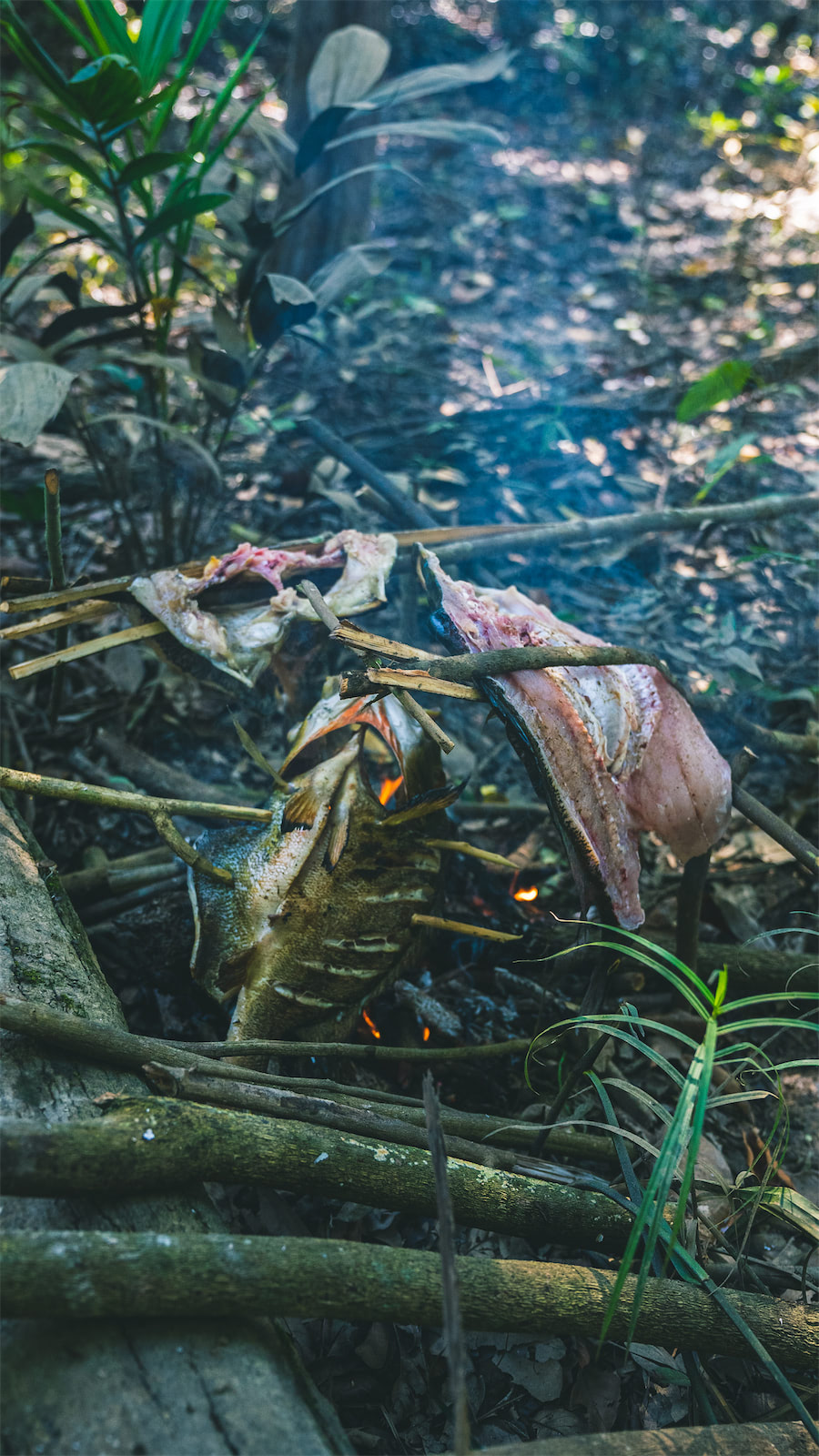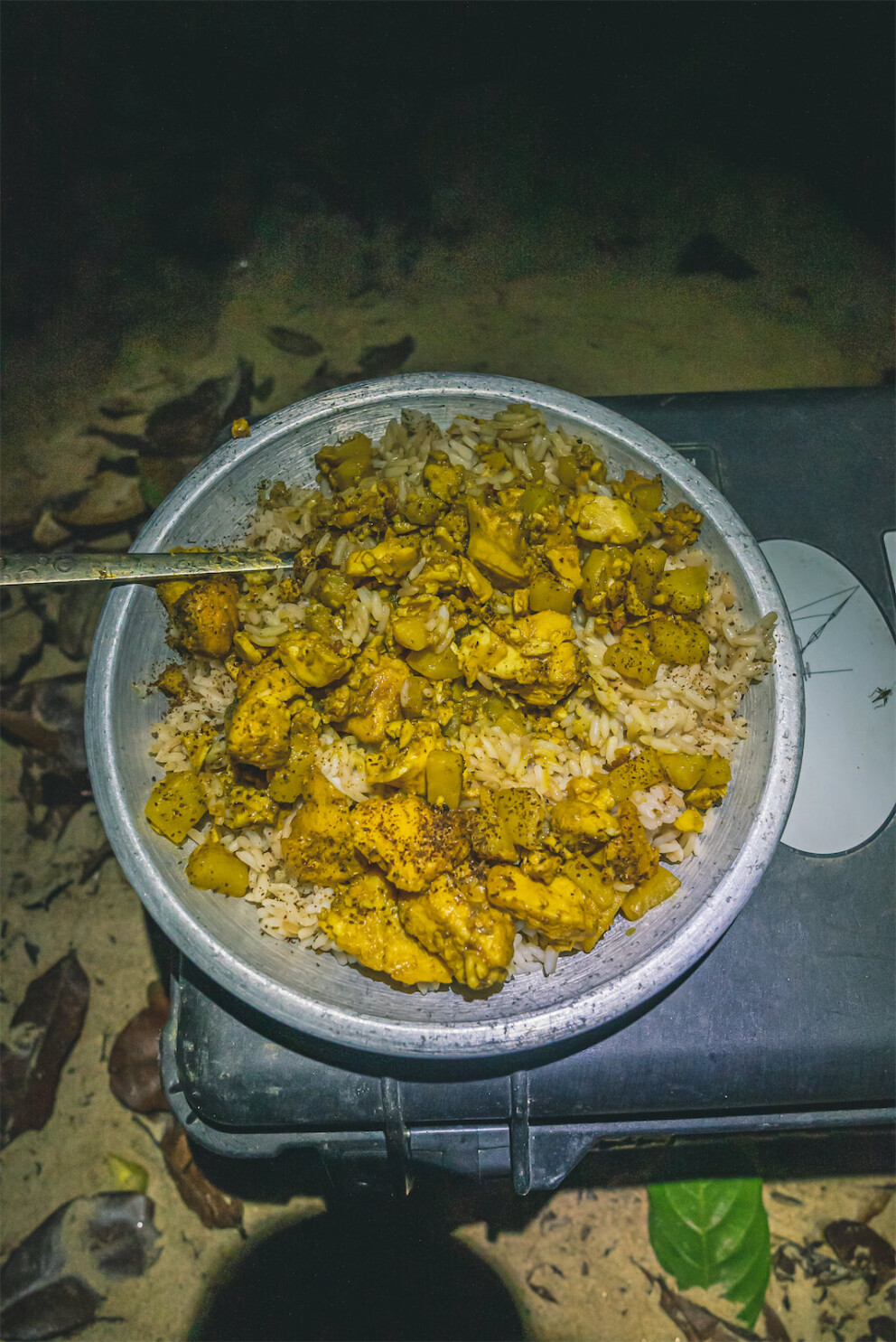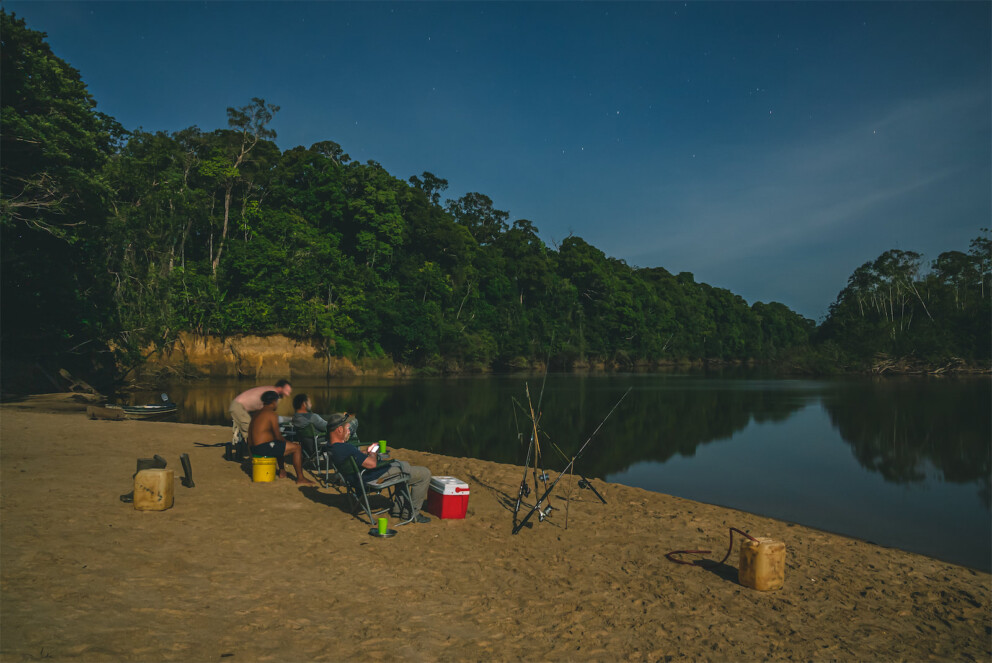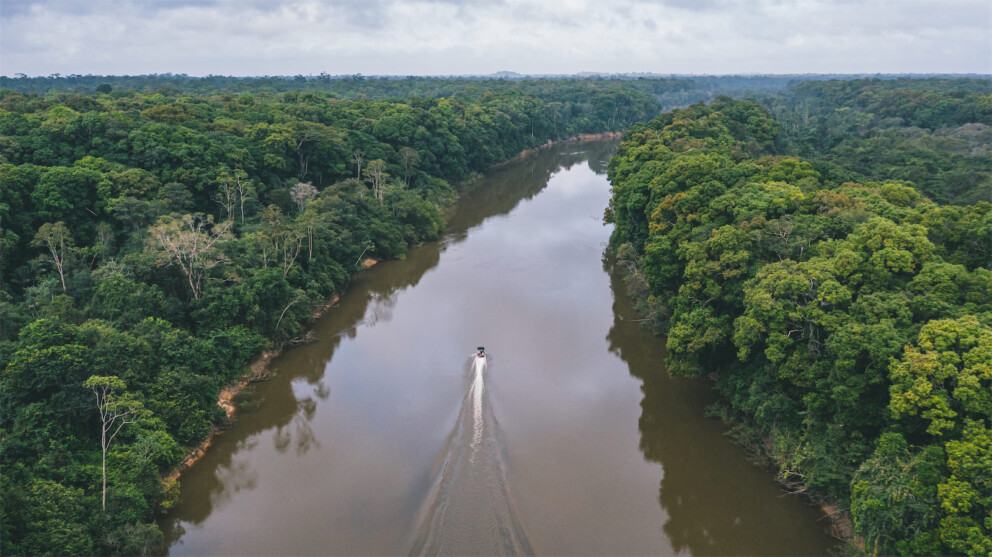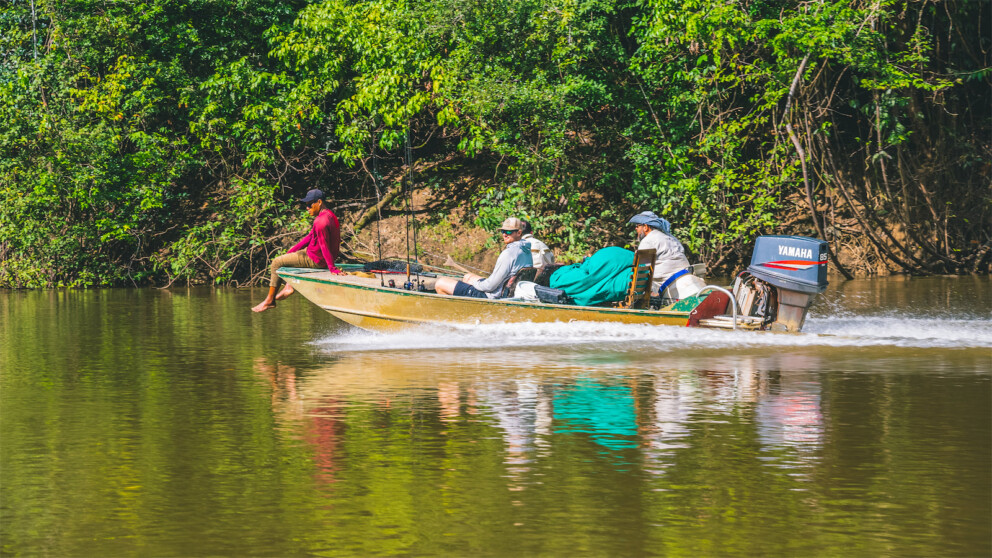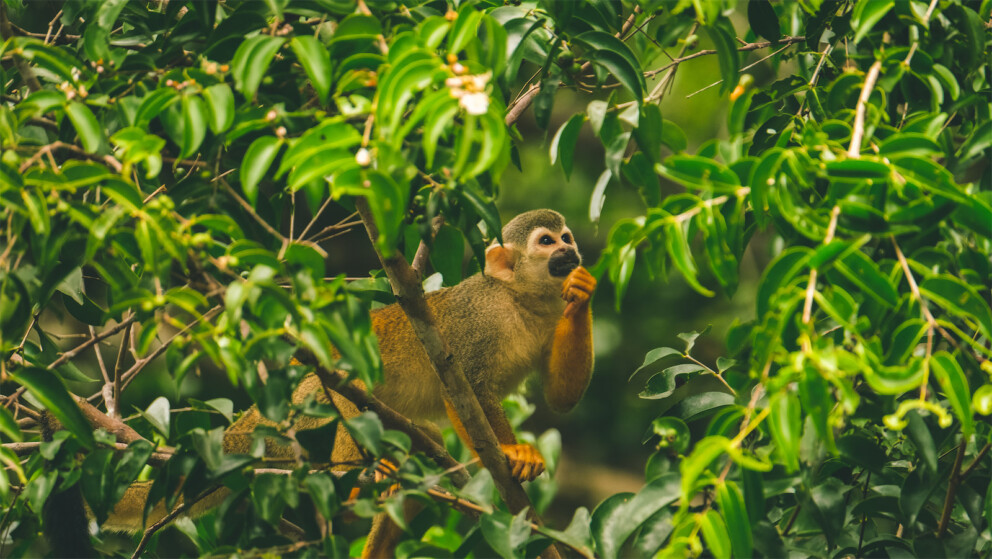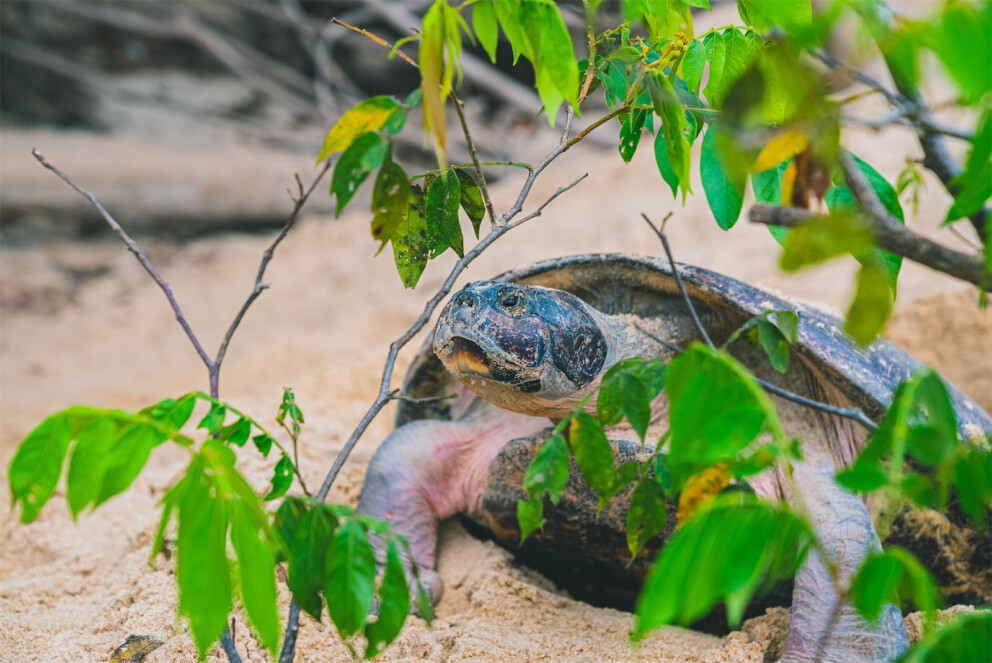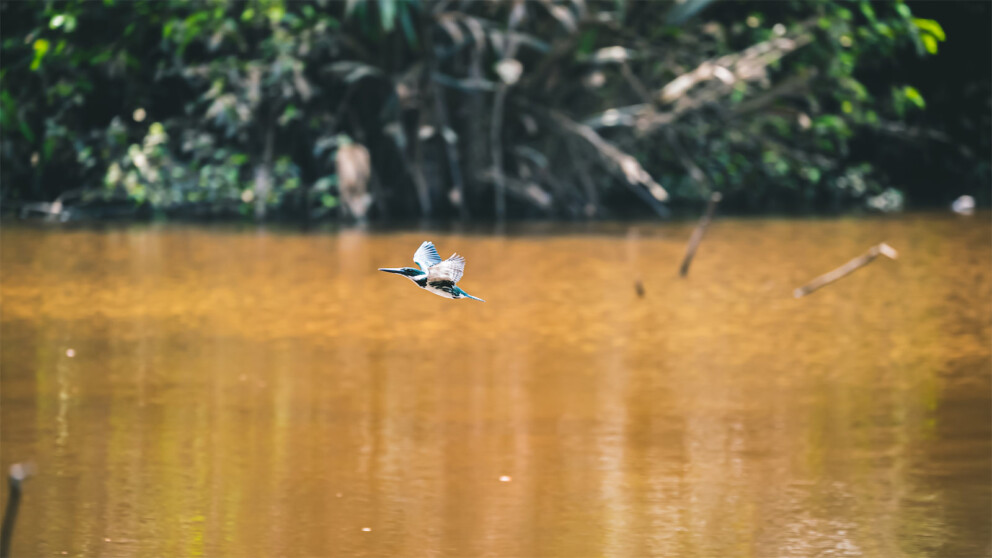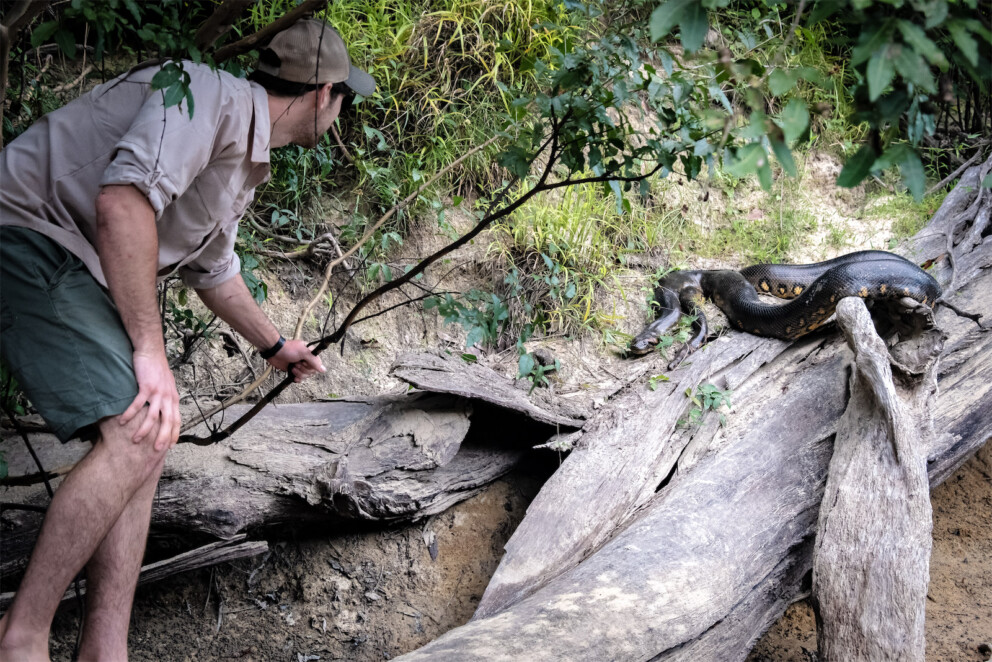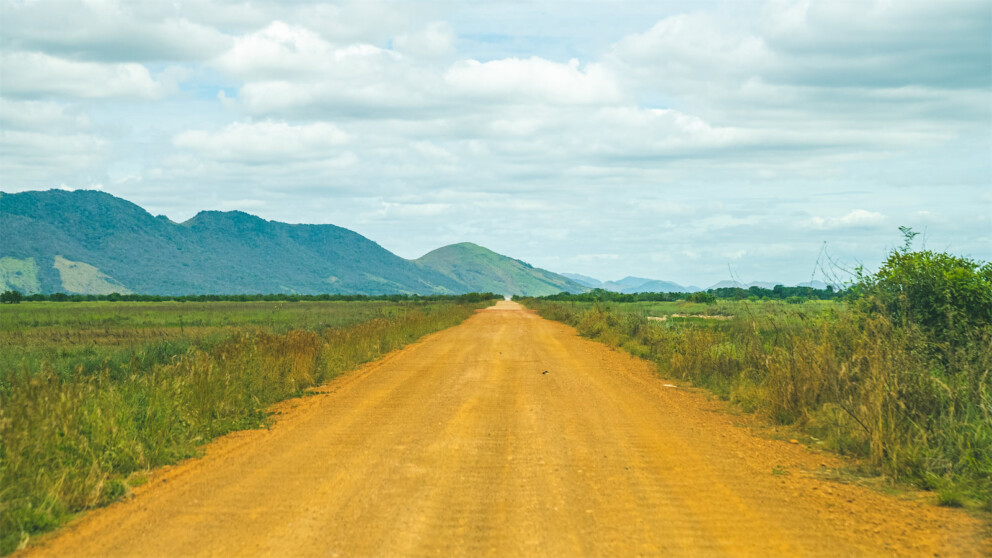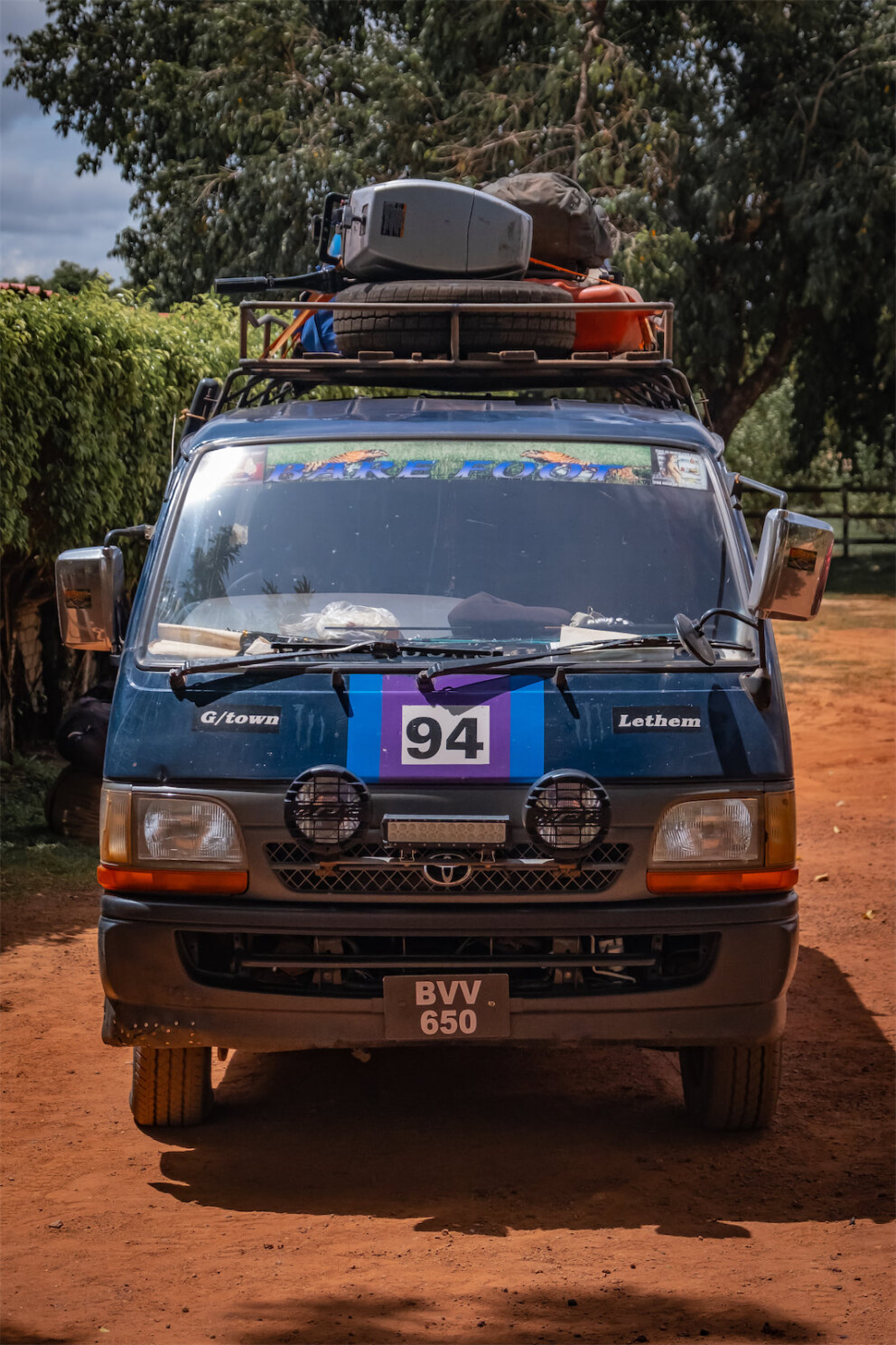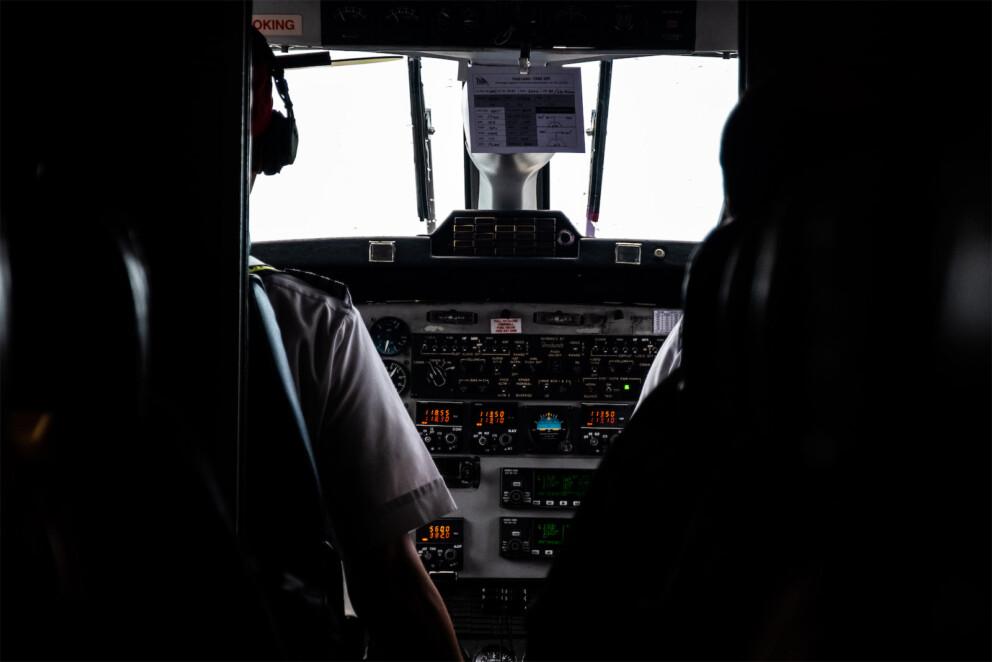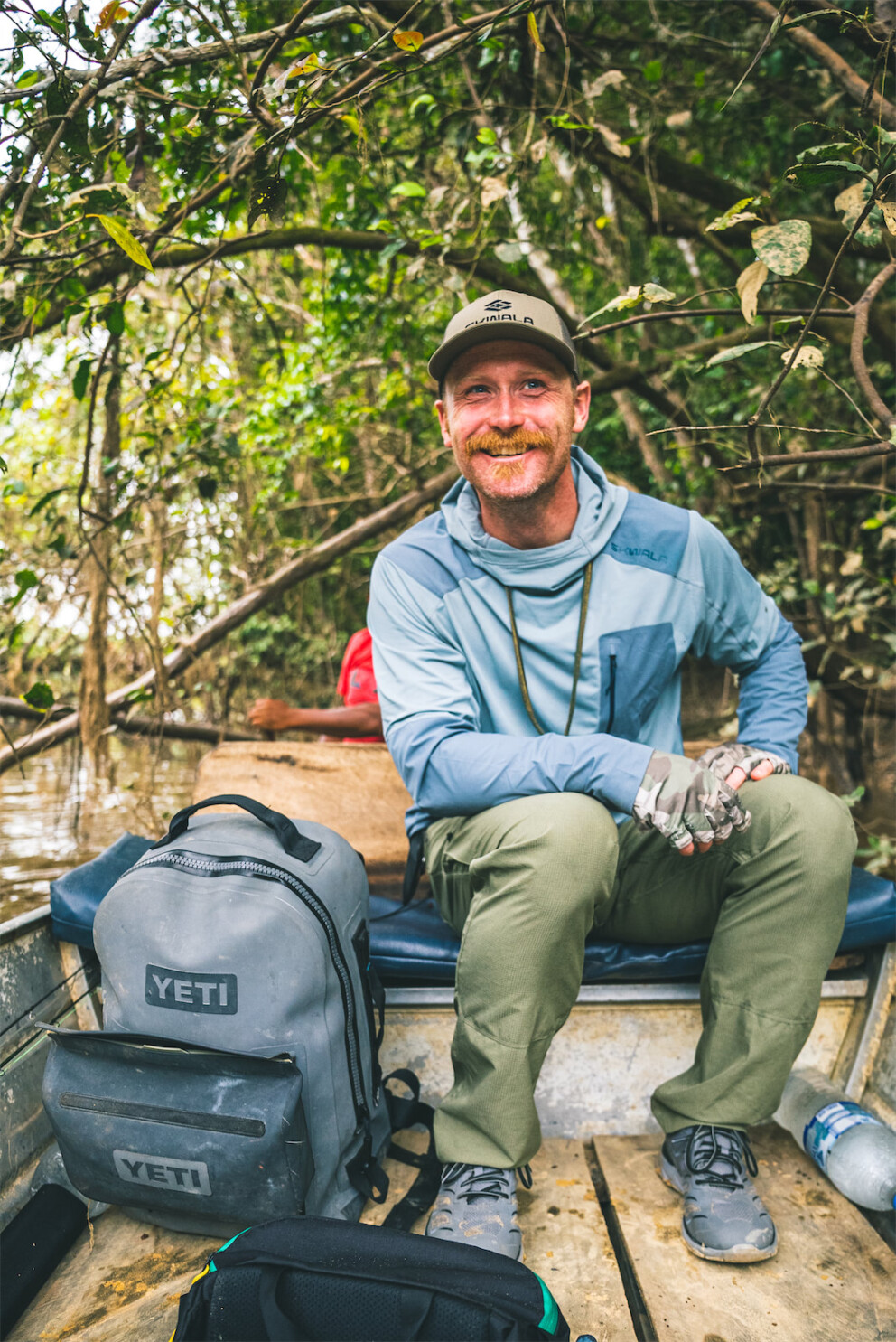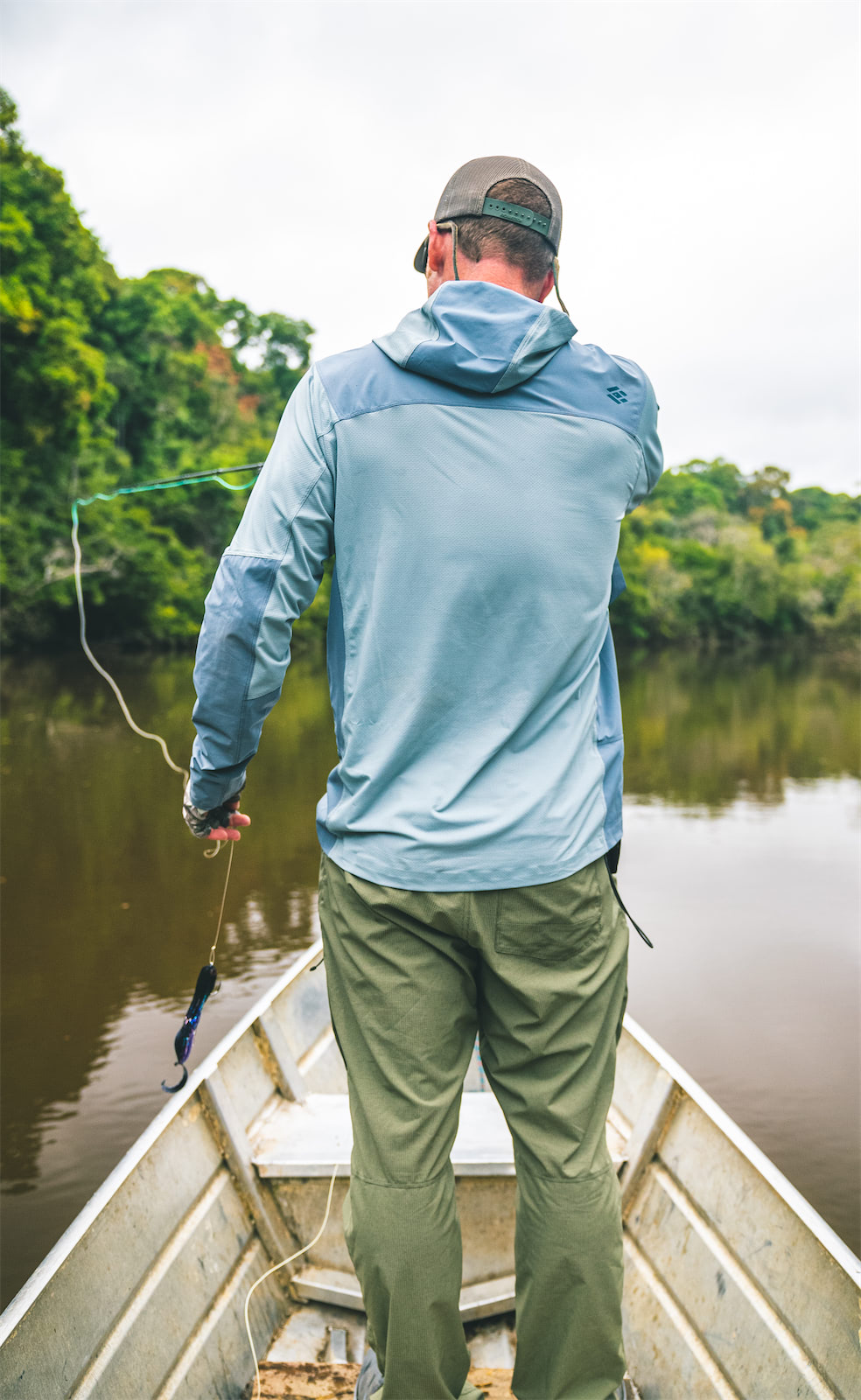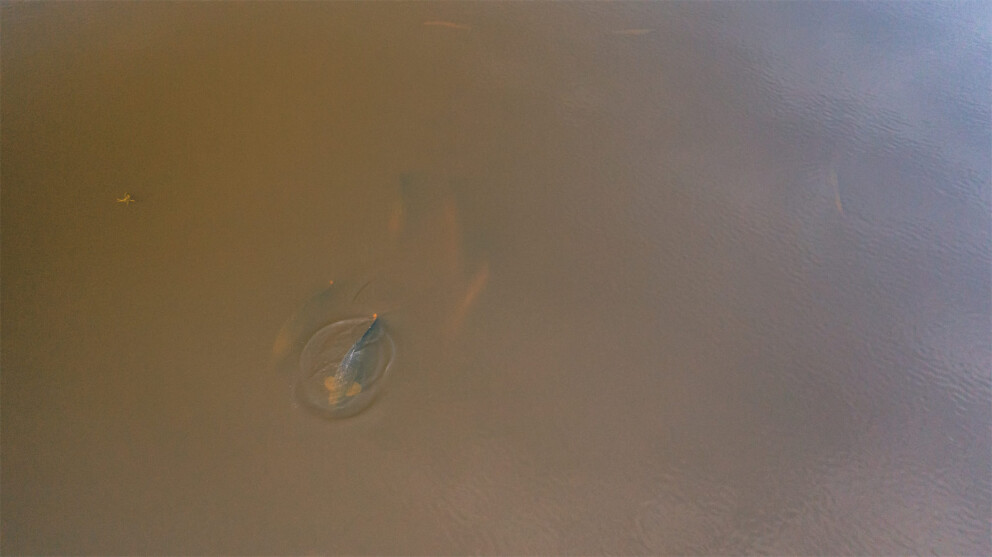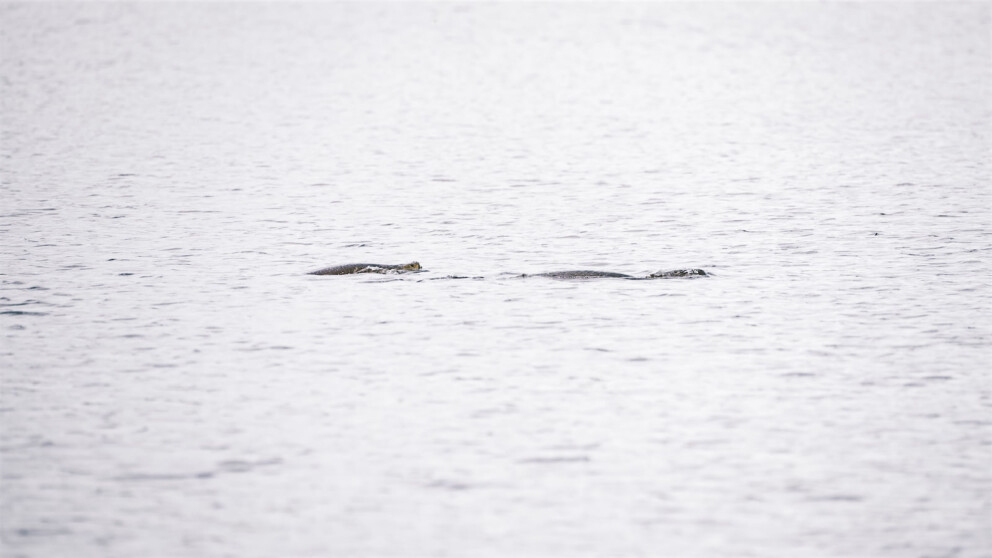It may go without saying that the king of all freshwater fishes reigns supreme here, too. “Small arapaima,” between 40 and 100 pounds, are common, aggressive and hard fighting. But the “average” fish may well be over the century mark, and anglers will see specimens reaching past 200, 300, and possibly even 400 pounds. Unofficial records have been caught here—unverified because guides refuse to kill or even excessively manhandle the sacred arapaima.
But don’t be fooled into thinking this is a catch-and-release only operation: the guides love nothing more than to harvest a couple of the delectable and highly populous peacock bass to spatchcock and roast over a low fire and share for lunch. The brawny and ornate catfishes that teem in the main river are also frequently on the menu for dinner, including the redtail/pirarara, tiger/surubi, leopard/perruno, topwater/dawala, and possibly even the mythical and monstrous jau catfish.
The jungle fly fishing holy grail for those in the know, however, might be the pacu. Somewhat resembling and behaving like permit, these black-to-bright-orange herbivores provide one of the fishing world’s great challenges in their grassy glides around cascades and rapids, such as Corona Falls. The saber-fanged payara are a good deal more aggressive and grow beyond 20 pounds here, showing off stunning jumps and a fearsome countenance. Arowana and butterfly peacock bass are similarly acrobatic and even more common. Other interesting species like swordfish (not that kind), cuti, and large black piranha keep anglers entertained and on their guard. There’s hardly an inch of water here that doesn’t have some dozens of fascinating fish lurking nearby.
